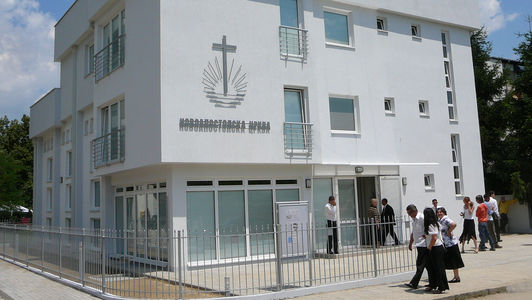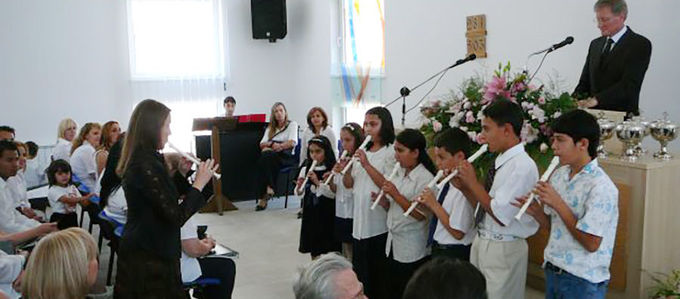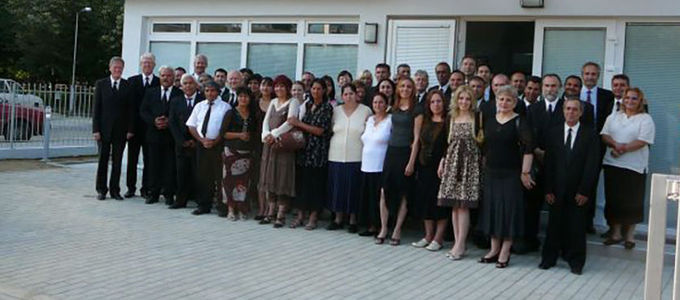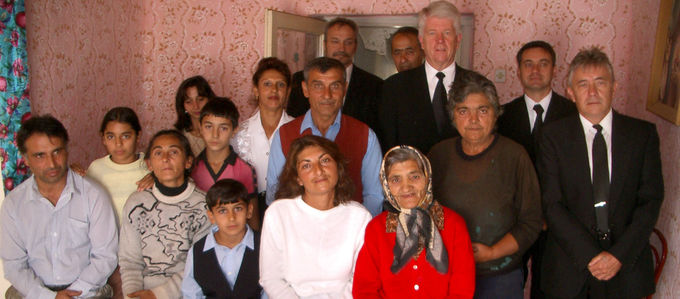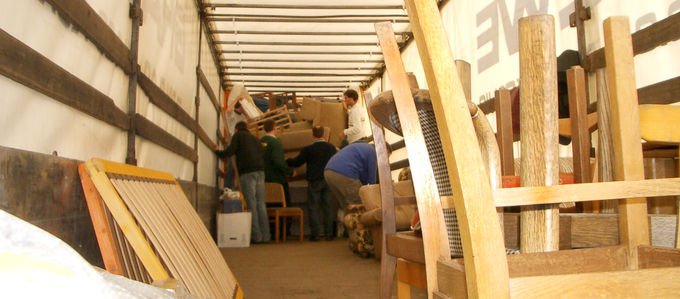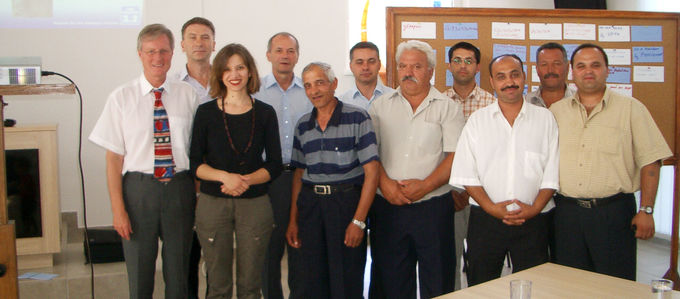A small community with a rich and varied history
"Come over to Macedonia and help us!"—on 8 March 2015, Chief Apostle Jean-Luc Schneider likewise heeded this call from Acts 16:9. There he encountered a small, but joyful community with a rich and varied history, and members who often live in bitter poverty.
In principle, the history of the New Apostolic Church in Macedonia began with a divine service in a local residence. So relates Bishop Georg Kaltschmitt, who has served the congregations in this country for approximately eighteen years by commission of the District Church of Southern Germany: a woman from Slovenia—who is today well advanced in years—was married in Macedonia and brought the New Apostolic faith with her from her homeland.
Escape and return home
Although there were already a few members of the Church in the capital city of Skopje in 1958, who were served by ministers from Belgrade and Austria, new opportunities for missionary work emerged when the former Yugoslavia fell apart in the early 1990s and the then District Church of Württemberg took over the care of the country.
The first to find their way to the New Apostolic Church were Macedonian Roma. The members of this ethnic minority had fled the Balkan war—much as they did again a decade later owing to the civil war-like conditions prevailing in the country. As refugee claimants they had also come to Germany and come into contact with the New Apostolic faith there, relates Bishop Kaltschmitt.
Poverty and hospitality
Most of the refugees were deported after a few years, however. Those who returned home later comprised the core members of the congregations of Stip, Sveti Nikole, Prilep, and Bitola. The Bishop can find only two words to describe their living conditions: "bitter poverty". Some 90 percent of Macedonian Roma are unemployed, according to official statistics. On many an occasion, their living conditions have shocked and dismayed Georg Kaltschmitt: "In our country there are more comfortable chicken coops than many of the dwellings there." In view of these conditions, members have brought whole truckloads of aid items such as clothing and furniture to the country.
The Bishop can still well remember the divine services of the early years: rooms barely twelve square metres in size, with some three dozen people seated on the floor and a little table for the Bible. However, he also has a great deal to tell about the exuberant hospitality of the people. "These people would spend the last of their money to host you, and all we wanted to do was talk to them about our faith."
Third visit from a Chief Apostle
Over the course of time, the New Apostolic faith has also come to resonate with other Slavic Macedonians. Today they are mostly to be found in the congregations of Skopje and Prilep. At present the New Apostolic Church in the country numbers some 400 members who are served by sixteen local ministers. Since 2006 they have had their own local District Elder, namely Stojan Manevski, the former mayor of the commune of Čaška, which numbers some 7,700 inhabitants.
For many of the members, this visit of Chief Apostle Schneider will mark the third divine service conducted locally by the leader of their Church. Chief Apostle Wilhelm Leber already visited the country in the year 2009, and in the year 2003, Richard Fehr became the first Chief Apostle to ever visit Macedonia. At the time, he served them with a Bible text from Acts 16: 9: "Come over to Macedonia and help us."
Key term: Macedonia
The Republic of Macedonia is a small country in South Eastern Europe which is home to some two million citizens. As of 1946, Macedonia was officially the southernmost constituent republic of Socialist Yugoslavia, but declared its independence in 1991. The country has one of the weakest economies of Europe and struggles with high levels of unemployment.
Macedonians comprise 64 percent of the total population. The country is also home to a large minority of Albanians (25 percent), and there are also some smaller minorities, for example Turks (3.85 percent), Roma (2.66 percent), and Serbians (1.78 percent).
In the most recent census in 2002, nearly half of the population gave no indication as to their confession. The second-largest group, with some 32.4 percent, was comprised of Orthodox Christians, of which the majority belong to the Macedonian Orthodox state church. Some 16.9 percent of the population professes Islam. According to estimates, approximately 5 percent belong to other religious denominations.


